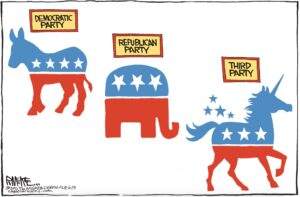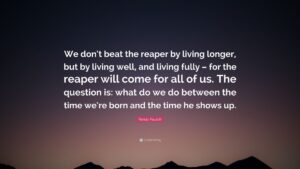 I was probably fourteen or fifteen years old when I had my first taco. It was made with seasoned ground beef on an Old El Paso hard taco shell, garnished with onions and shredded cheese, then smothered in Old El Paso Taco Sauce. For the next several years, I was under the impression that the tacos my mother made for our family were the only kind of tacos in the world. I was naïve.
I was probably fourteen or fifteen years old when I had my first taco. It was made with seasoned ground beef on an Old El Paso hard taco shell, garnished with onions and shredded cheese, then smothered in Old El Paso Taco Sauce. For the next several years, I was under the impression that the tacos my mother made for our family were the only kind of tacos in the world. I was naïve.
When I was nineteen or twenty years old, I went to El Rocha, an authentic Mexican restaurant in my hometown, with a group of friends. I was not very worldly and the only Mexican restaurant I had ever been to before was Taco Bell. In other words, to that point in my young life, I had never been to a real Mexican restaurant.
I remember looking at the menu and was transfixed by the number of different types of tacos they offered. There was Tacos Pescado, and Tacos Barbacoa, and Tacos al Pastor and Carnitas, both of which were pork, which only served to confuse me further. I ordered the Tacos Carnitas and was soon introduced to an entirely new world of culinary delights.
As happens so often, questions entered my head–Where do tacos come from? How many different types of tacos are there?–and I was soon crawling down a rabbit hold that consumed my time and simultaneously made me hungry.
The first question is fairly easy to answer. Tacos are thought to come from Mexico, long before the Spanish arrived. Ancient Mexicans used fresh, soft, flat corn tortillas and made them with fillings like fish and cooked organs. It was a staple meal that provided vital nutrients and energy to those who consumed it.
The answer to the second question is a little more involved. Here are the different types of tacos I was able to come up with. I’m sure it’s not a comprehensive list, so if you have a favorite taco that’s not included here, let me know.
Tacos Adobado — Tacos Adobado can contain just about any kind of meat filling. The thing that distinguishes Tacos Adobado from other tacos is the meat is prepared with adobado. While popular in Tijuana, not many restaurants in the U.S. serve Tacos Adobado.
Tacos al Pastor — “Shepherd-style” pork marinated in a blend of chilies and spices, then slow-cooked on a Mexican trompo (vertical rotisserie) over an open flame. Garnish often includes something sweet, like pineapple, which is cut into very small pieces to give the taco a sweet, tangy flavor.
Tacos Arabes — A taco that combines Mexican and Middle Eastern influences. Cumin-marinated pork is thinly sliced from a trompo, stuffed into a pita rather than a tortilla, and garnished with diced yellow onions, crumbled bacon, cumin, oregano, and lime juice.
Tacos Barbacoa — Beef (cachete) or goat (cabrito) slow-cooked over an open flame Garnished with chopped onions, cilantro, and lime juice. Very popular in Northern Mexican and in the Rio Grande Valley of Texas.
Tacos Birria — Birria is a spicy meat stew prepared with goat that is popular in the State of Jalisco. The goat is marinated in a guajillo chili-based broth. Birria is a special occasion dish, popular at weddings and other gatherings, but for more informal occasions, the birria is eaten as a taco on a tortilla, garnished with tomatoes, onions, and cilantro. Birria des beef is prepared the same way, but using beef instead of goat.
Tacos Buche — Features the stomach of the pig which is stewed in spices and chilies, making the meat tender (though somewhat chewy) and tasty. Buche is less chewy than beef tripe, which is more well known in the United States.
Tacos Cabeza – Beef from the head of the cow, flavored simply with salt, and often braised or steamed. Garnished with onions and cilantro, and sometimes leeks.
Tacos Camarones — Shrimp tacos feature grilled or deep fried shrimp, and are garnished with cabbage, pico de gallo, salsa, and either a sour cream or citrus mayonnaise white sauce.
Tacos Campechanos — Popular in Southern Mexico, campechanos are often made with a combination of meats, including beef, pork sausage, or chirizo. Often, the tacos are made with whatever is left over from previous meals. Often garnished with onions, cilantro, and lime juice.
Tacos Carne Asada — Carne Asada refers to grilled meat, most frequently flap steak. The meat is marinated in citrus juices, cumin, and other spices, and is either sliced thin or chopped into small chunks.
Tacos Carnitas — Made with braised or simmered shredded pork shoulder. Tacos Carnitas are very popular, especially in the State of Michoacan, because they are simple, easy to prepare, and extremely tasty.
Tacos Cecina — Cecina refers to beef or pork that is thinly sliced, salted, and dried in sheets or strips in the open air, sun, or smoke. The meat is marinated in a coating of chili peppers, resulting in a smoky flavor, and easily folds into a tortilla for a tasty taco.
Tacos Chapulines — Chapulines are grasshoppers (Yes, grasshoppers) that are dried and toasted, then flavored with lime juice, garlic, and chili. Chapulines are often eaten as a snack, much like french fries, but can also be eaten on a tortilla with common garnishes for a crunchy-style taco.
Tacos Chicharron — Chicharron, more commonly known as pork rinds in the United States, are simmered in salsa verde to soften them up, and then stuffed into a tortilla for a spicy, somewhat chewy, taco.
Tacos Chorizo — Mexican chorizo is a blend of minced meat–usually pork–that is cured and smoked, and seasoned with spicy chili peppers. Especially popular in the State of Toluca, Tacos Chirizo are often garnished simply, with red onions.
Tacos Cochinita Pibil — Popular in the Yucatan Pennisula, Tacos Cochinita Pibil are made with a sucking pig (pork) that is marinated in citric juices, such as bitter oranges, lemons, and limes. The pork is often seasoned with annatto seed and slow roasted in a banana leaf, leaving the meat incredibly tender.
Tacos Cueritos — Like Chicarrones, but instead of being deep fried, the pork skin is pickled in vinegar and seasoned with chilis, peppers, oregano, and other spices.
Tacos de Canasta — Also called Tacos al Vapor or Tacos Sudados, these tacos are named, not for their filling, but for the way they are prepared. The tortilla is fried and then filled with ingredients like tinga (below) or cochinita pibil (above). However, two of the the most popular fillings are mashed potatoes or refried beans. The ingredients hold up well without being heated or refrigerated, and are often sold by street vendors.
Tacos Huitlacoche — Also called Mexican truffle, corn smut, or corn mushroom, huitlacoche is a fungus that organically grows on corn. It is distinctly Mexican, and is rare, even in Mexico. When heated, the white huitlacoche turns black and has a rich, earthy flavor, often compared favorably to mushrooms.
Tacos Lengua — Beef tongue is slow-cooked for several hours then chopped into small, uniform pieces. The beef tongue, when cooked properly, is said to have a buttery texture, and is often served with cabbage, tomatoes, and a sour cream sauce.
Tacos Pescado — Called “fish tacos” in the United States, Tacos Pescado originated in Baja California and feature grilled or fried white fish filets along with cabbage, pico de gallo, salsa, and a white sauce made either with sour cream or citrus mayonnaise.
Tacos Pollo — Pollo (chicken) is usually marinated and grilled, then shredded or cut into chunks before being put into a tortilla with a variety of different toppings. In the United States, the chicken is sometimes southern fried.
Tacos Res — A generic term for any taco made with beef. Toppings and cooking style may vary, but Tacos Res always features beef.
Tacos Sesos — Features cow brains which are first boiled and seasoned before being braised or grilled. The meat has a custard-like consistency, which is favored by some over a crunchy or chewy taco.
Tacos Suadero de Res — A taco featuring the beef between the belly and leg of the cow that is stewed in lard for several hours before being fried, resulting in a crispy, carmalized filling. Often served with chopped onions and crumbled queso.
Tacos Tinga — Pollo (chicken) meat from the thigh that is braised in tomato-chipotle chili sauce, then shredded and served on a tortilla with a variety of garnishes.
Tacos Tripas — Cows stomach or intenstines that are cleaned and boiled before being grilled, often in a “disco,” which somewhat resembles a wok. If not cooked correctly, Tacos Tripas can turn out rubbery.
Tacos de Trompo — Pork that is seasoned with paprika and is warmed on a trompo (vertical rotisserie). In Mexico, the pork is often warm, but raw. Because of local health regulations, in the United States, the pork is fully cooked. Served on a corn tortilla, the paprika gives the pork a smoky, spicy flavor.

 No Labels, the supposedly moderate, “get things done,” political organization, is gearing up to run a third-party candidate in the 2024 Presidential Election. They are currently fundraising, and are doing so by trying to convince people that not only can they win, but if they do, all of our current problems with political division and gridlock will magically disappear, ushering in a new era of cooperation and tri-partisanship. That’s nonsense. There’s no way any of that is going to happen.
No Labels, the supposedly moderate, “get things done,” political organization, is gearing up to run a third-party candidate in the 2024 Presidential Election. They are currently fundraising, and are doing so by trying to convince people that not only can they win, but if they do, all of our current problems with political division and gridlock will magically disappear, ushering in a new era of cooperation and tri-partisanship. That’s nonsense. There’s no way any of that is going to happen. At only 5’2”, Ben Ferencz was not an imposing figure. But during the course of his life, he became a giant in the areas of international criminal law, in prosecuting war crimes, and in the quest for world peace. He died earlier this month (4/7/23) in an assisted living facility in Boynton Beach, FL. He was 103.
At only 5’2”, Ben Ferencz was not an imposing figure. But during the course of his life, he became a giant in the areas of international criminal law, in prosecuting war crimes, and in the quest for world peace. He died earlier this month (4/7/23) in an assisted living facility in Boynton Beach, FL. He was 103.
 It’s sad to say, but mass shootings in the United States have become so common, that it is easy to view them from a distance, to be detached. After all, the shootings happen somewhere else, to someone else. Sure, they’re horrible, but for most of us, they don’t really affect our lives. Until they do.
It’s sad to say, but mass shootings in the United States have become so common, that it is easy to view them from a distance, to be detached. After all, the shootings happen somewhere else, to someone else. Sure, they’re horrible, but for most of us, they don’t really affect our lives. Until they do.
 Back in 2021, I compiled a list of the
Back in 2021, I compiled a list of the  I’ve had sinus issues for years. Since 1995, I’ve had three sinus surgeries, and I’m pretty sure I’m due for another one. Over the past few months, my sinuses have been all stuffed up, and it’s making me constantly dizzy. Trust me, it’s not much fun.
I’ve had sinus issues for years. Since 1995, I’ve had three sinus surgeries, and I’m pretty sure I’m due for another one. Over the past few months, my sinuses have been all stuffed up, and it’s making me constantly dizzy. Trust me, it’s not much fun. If you had to choose, would you choose more time or more money? I suspect most people would say they’d choose more time. More time to spend with their loved ones. More time to explore the world. More time to pursue hobbies or passions. More time to learn more, do more, see more. And yet, most of us spend the majority of our time pursuing money. Why is that?
If you had to choose, would you choose more time or more money? I suspect most people would say they’d choose more time. More time to spend with their loved ones. More time to explore the world. More time to pursue hobbies or passions. More time to learn more, do more, see more. And yet, most of us spend the majority of our time pursuing money. Why is that?